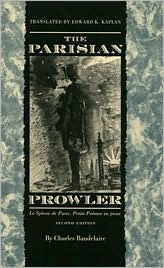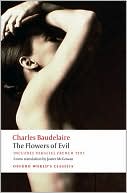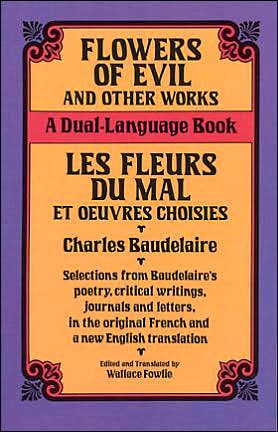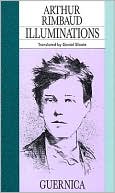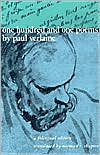The Parisian Prowler, 2nd Ed.
From Edouard Manet to T. S. Eliot to Jim Morrison, the reach of Charles Baudelaire's influence is beyond estimation. In this prize-winning translation of his no-longer-neglected masterpiece, Baudelaire offers a singular view of 1850s Paris. Evoking a mélange of reactions, these fifty "fables of modern life" take us on various tours led by a flâneur, an incognito stroller.\ Through day and night, in gleaming cafés and filthy side streets, this alienated yet compassionate esthete muses on the...
Search in google:
From Edouard Manet to T. S. Eliot to Jim Morrison, the reach of Charles Baudelaire's influence is beyond estimation. In this prize-winning translation of his no-longer-neglected masterpiece, Baudelaire offers a singular view of 1850s Paris. Evoking a mélange of reactions, these fifty "fables of modern life" take us on various tours led by a flâneur, an incognito stroller.Through day and night, in gleaming cafés and filthy side streets, this alienated yet compassionate esthete muses on the bizarre in the commonplace, the sublime in the mundane. As the work reveals a teeming metropolis on the eve of great change, we see a Paris as contradictory, surprising, and ultimately unknowable as our guide himself. Superbly complemented by twenty-one period illustrations by Delacroix, Callot, Manet, Whistler, Baudelaire himself, and others, The Parisian Prowler is an essential companion to Les Fleurs du Mal and other works by the father of modern poetry. In the preface to this edition, translator Edward K. Kaplan explains how the volume's illustrations act as a graphic subtext to the narrator's observations.Library JournalThis collection of 50 prose poems, first published in 1862 as Le Spleen de Paris , is Baudelaire's attempt to describe the contradictions, fables, and fictions of city life in an innovative poetic prose. Kaplan's choice of title is indeed a good one, for though it was not the title of the original edition it is an expression often used by Baudelaire. Rendered in present-day English, the poems are restored to their original ``modernity,'' allowing the reader to appreciate Baudelaire's subtle moods and ambiguities. This annotated edition, illustrated with the works of Baudelaire's contemporaries (Daumier, Manet, and Whistler, to name just a few) succeeds in shaking the dust from two earlier translations (Arthur Symons's in 1905 and Louise Varese's in 1947) and brings to light Baudelaire's precocious contributions to modern thought.-- Danielle Mihram, Univ. of Southern California Lib.\\
PrefaceIntroduction: Baudelaire's Neglected Masterpiece1The Stranger12The Old Woman's Despair33The Artist's Confiteor44A Joker55The Double Room66To Each His Chimera97The Fool and the Venus118The Dog and the Scent-Bottle129The Bad Glazier1310At One O'Clock in the Morning1611The Wild Woman and the Affected Coquette1812Crowds2113Widows2314The Old Acrobat2715The Cake3116The Clock3417A Hemisphere in Tresses3518Invitation to the Voyage3719The Pauper's Toy4020The Fairies' Gifts4221The Temptations, or Eros, Plutus, and Fame4522Twilight5023Solitude5224Plans5525Beautiful Dorothy5726The Eyes of the Poor6027A Heroic Death6328The Counterfeit Coin6929The Generous Gambler7130The Rope7731Vocations8132The Thyrsus8633Get High8934Already!9035Windows9336The Desire to Paint9437The Moon's Benefits9638Which Is the True One?9839A Thoroughbred9940The Mirror10141The Harbor10242Portraits of Mistresses10343The Gallant Marksman10944The Soup and the Clouds11045The Shooting Range and the Cemetery11146Loss of Halo11347Miss Scalpel11548N'Importe Ou Hors do Monde. Any Where Out of the World11949Let's Beat Up the Poor!12150The Good Dogs125Appendix: Preface to La Presse, 1862129Notes131Illustration Credits137\\
\ Library JournalThis collection of 50 prose poems, first published in 1862 as Le Spleen de Paris , is Baudelaire's attempt to describe the contradictions, fables, and fictions of city life in an innovative poetic prose. Kaplan's choice of title is indeed a good one, for though it was not the title of the original edition it is an expression often used by Baudelaire. Rendered in present-day English, the poems are restored to their original ``modernity,'' allowing the reader to appreciate Baudelaire's subtle moods and ambiguities. This annotated edition, illustrated with the works of Baudelaire's contemporaries (Daumier, Manet, and Whistler, to name just a few) succeeds in shaking the dust from two earlier translations (Arthur Symons's in 1905 and Louise Varese's in 1947) and brings to light Baudelaire's precocious contributions to modern thought.-- Danielle Mihram, Univ. of Southern California Lib.\\\ \
